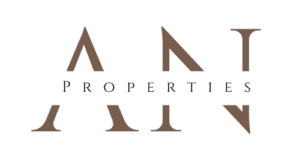
The Ultimate Guide to Buying Your First Home in Saskatchewan
Buying your first home is a monumental milestone, an exciting journey that can be both exhilarating and overwhelming. Saskatchewan, with its vibrant communities and diverse landscapes, offers an array of opportunities for first-time homebuyers. This comprehensive guide will walk you through every step of the process, from understanding the local market to securing financing and navigating the closing process. By the end of this guide, you’ll be well-equipped with the knowledge you need to make informed decisions and confidently embark on your home-buying journey in Saskatchewan.
Understanding the Saskatchewan Real Estate Market
Overview of the Market
Saskatchewan’s real estate market is characterized by its affordability, stability, and growth potential. Unlike the volatile markets in larger metropolitan areas, Saskatchewan offers a more balanced environment, making it an attractive option for first-time buyers. Cities like Regina and Saskatoon are particularly popular, offering a mix of urban amenities and suburban tranquility.
Regional Differences
Understanding the regional differences within Saskatchewan is crucial. Regina, the provincial capital, boasts a vibrant cultural scene, excellent educational institutions, and a robust job market. Saskatoon, known as the “City of Bridges,” is famous for its beautiful river views, thriving arts community, and innovative tech sector. Smaller towns and rural areas, such as Moose Jaw and Prince Albert, offer a slower pace of life and close-knit communities.
Market Trends
Keeping an eye on market trends can help you time your purchase effectively. Over the past few years, Saskatchewan has seen steady growth in property values, driven by economic stability and an influx of new residents. Pay attention to factors like interest rates, housing inventory, and economic forecasts to gauge the best time to buy.
Setting Your Budget
Evaluating Your Finances
Before you start house hunting, it’s essential to evaluate your financial situation. Begin by calculating your monthly income, expenses, and existing debt. This will help you determine how much you can comfortably afford to spend on a home without compromising your financial stability.
Down Payment
In Canada, the minimum down payment varies based on the purchase price of the home. For homes priced up to $500,000, the minimum down payment is 5%. For homes priced between $500,000 and $999,999, the down payment is 5% of the first $500,000 and 10% of the remaining amount. Homes priced at $1 million or more require a minimum down payment of 20%.
Closing Costs
In addition to your down payment, you’ll need to budget for closing costs, which typically range from 1.5% to 4% of the purchase price. These costs include legal fees, land transfer taxes, home inspection fees, and more.
Securing Financing
Mortgage Pre-Approval
Obtaining mortgage pre-approval is a crucial step in the home-buying process. A pre-approval not only gives you a clear idea of how much you can borrow but also shows sellers that you’re a serious buyer. To get pre-approved, you’ll need to provide your lender with documents such as proof of income, credit history, and details of your debts and assets.
Types of Mortgages
Understanding the different types of mortgages can help you choose the best option for your needs. Fixed-rate mortgages offer stability, with a set interest rate and monthly payments throughout the loan term. Variable-rate mortgages have interest rates that fluctuate based on market conditions, which can result in lower initial payments but increased risk over time.
First-Time Home Buyer Incentives
Take advantage of programs designed to assist first-time homebuyers. The First-Time Home Buyer Incentive (FTHBI) is a government program that offers 5% or 10% of the home’s purchase price to put towards a down payment, thereby lowering mortgage payments. Additionally, the Home Buyers’ Plan (HBP) allows you to withdraw up to $35,000 from your RRSP to buy or build a qualifying home.
Finding Your Dream Home
Working with a Real Estate Agent
Partnering with a knowledgeable real estate agent can make the home-buying process much smoother. An experienced agent will help you navigate the market, find properties that match your criteria, and negotiate on your behalf. Look for an agent who specializes in the areas you’re interested in and has a strong track record of success.
Defining Your Needs and Wants
Before you start viewing homes, make a list of your needs and wants. Needs are non-negotiables like the number of bedrooms, proximity to work or schools, and budget constraints. Wants are features that would be nice to have but aren’t deal-breakers, such as a large backyard, modern kitchen, or extra bathroom.
House Hunting Tips
When viewing homes, take note of both the positive and negative aspects. Pay attention to the property’s condition, the neighborhood, and potential future resale value. Don’t rush the process—take your time to find a home that truly meets your needs and feels right for you.
Making an Offer
Crafting a Competitive Offer
When you find the right home, work with your real estate agent to craft a competitive offer. Your offer should reflect the current market conditions and the property’s value. Be prepared to negotiate with the seller, and consider including contingencies for financing, inspection, and appraisal.
The Offer Process
Once your offer is accepted, you’ll enter into a purchase agreement with the seller. This legally binding contract outlines the terms and conditions of the sale, including the purchase price, closing date, and any contingencies.
Navigating the Closing Process
Home Inspection
A home inspection is a crucial step in the closing process. Hire a qualified inspector to thoroughly evaluate the property’s condition, identifying any potential issues that could affect its value or require repairs. If significant problems are found, you may need to renegotiate the purchase price or request that the seller address the issues before closing.
Finalizing Your Mortgage
With the purchase agreement in place, you’ll need to finalize your mortgage. This involves submitting any additional documentation required by your lender and securing mortgage insurance if your down payment is less than 20%.
Closing Day
On closing day, you’ll meet with your lawyer or notary to sign the final paperwork and transfer ownership of the property. You’ll also need to pay the remaining closing costs and receive the keys to your new home.
Settling Into Your New Home
Moving In
Once the sale is finalized, it’s time to move into your new home. Plan your move carefully, whether you’re hiring professional movers or doing it yourself. Ensure you have all the necessary supplies, and don’t forget to update your address with utility companies, banks, and other important contacts.
Home Maintenance Tips
Maintaining your new home is essential for preserving its value and ensuring your comfort. Create a maintenance schedule that includes regular tasks like cleaning gutters, servicing HVAC systems, and checking for leaks. Staying proactive with home maintenance can prevent costly repairs down the line.
Getting to Know Your Community
Take the time to explore your new neighborhood and get involved in the community. Introduce yourself to neighbors, attend local events, and visit nearby parks, shops, and restaurants. Building a connection with your community can make your new house feel like home.
Buying your first home in Saskatchewan is a significant and rewarding achievement. By understanding the local market, setting a realistic budget, securing financing, and navigating the home-buying process with confidence, you can make informed decisions that lead to a successful and satisfying home purchase. Remember, this journey is about more than just buying a property—it’s about finding a place where you can build a future and create lasting memories.
Looking to Buy, Sell, or Manage Property in Saskatchewan?
Book a Call with Our Experienced Team and Let’s Make It Happen.
Take the First Step to Homeownership
Ready to buy a home? Our Free Buyers Guide is your essential companion. Download now for expert advice and a smooth, stress-free home buying experience.
Get Your Free Guide Now!
Compare listings
ComparePlease enter your username or email address. You will receive a link to create a new password via email.

Curious about the current value of your home?
Reach out to get your Current Market Analysis
Curious about the current value of your home?
Reach out to get your Current Market Analysis

